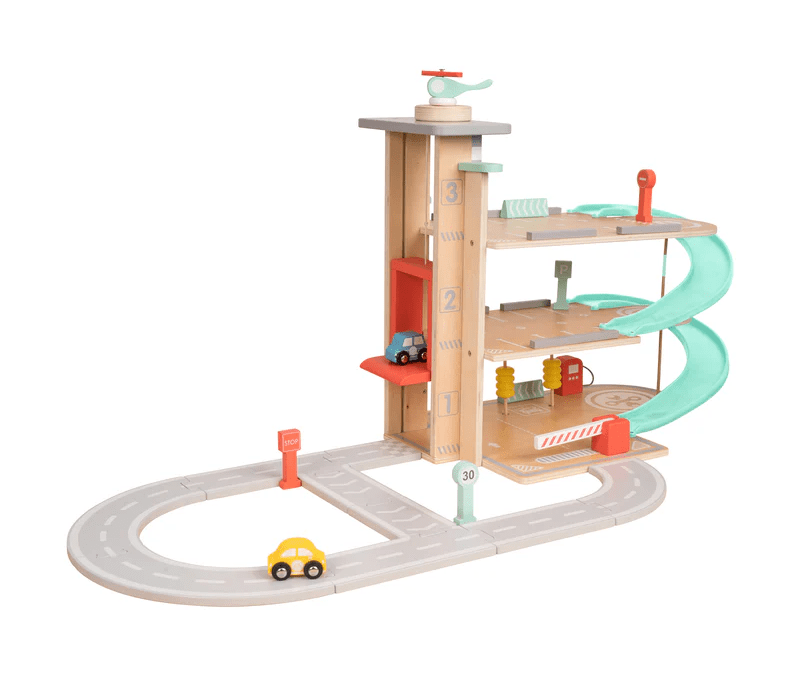In today’s fast-paced digital world, the importance of socialisation through play is often overlooked, particularly in the context of early childhood development. Yet, research continues to show that play is not only a fun and engaging activity but also a critical tool in fostering both cognitive and social development. Among the various types of play, social play holds particular significance as it helps children build relationships, enhance communication skills, and develop essential cognitive abilities. With the rise of educational learning toys such as baby wooden toys, the traditional concept of play is evolving, offering even more benefits for children’s learning journeys. This article will explore the educational benefits of social play, highlighting how toys like wooden baby toys can support cognitive growth and foster vital social connections.
The Importance of Social Play
At its core, social play is the interaction between children or between a child and an adult that involves communication, cooperation, and shared activities. It is not only about engaging in play itself but also about learning how to interact with others, negotiate, and share experiences. Social play takes many forms, from playing simple games to engaging in imaginative play or team activities. Through these interactions, children learn key social skills like empathy, teamwork, and problem-solving.
One of the most compelling reasons social play is crucial for young children is because it lays the foundation for emotional intelligence. As children engage with others during play, they begin to understand different emotions, perspectives, and behaviours. They start to learn how to regulate their emotions and react appropriately in various situations. This kind of learning cannot be achieved solely through solitary play or passive activities. Instead, it is the dynamic, responsive nature of social play that makes it so effective in promoting emotional and social development.
Cognitive Development Through Play
Social play isn’t just about building social skills – it also plays a significant role in cognitive development. During play, children are encouraged to think critically, make decisions, solve problems, and develop their creativity. Cognitive skills such as memory, attention, and logical thinking are enhanced when children play in a social context, particularly when they collaborate with others to solve challenges or explore new ideas.
For instance, when playing a group game, children must remember rules, turn-taking sequences, and how to cooperate with others. This fosters executive functioning skills, such as working memory, flexible thinking, and self-control. Whether playing board games, outdoor activities, or role-playing, each type of social play strengthens cognitive processes that are foundational for academic and life success.
The Role of Educational Learning Toys
Incorporating educational learning toys into play can significantly amplify the cognitive benefits of social play. Toys that are designed with learning in mind encourage children to think critically and solve problems in creative ways. Educational toys are not just for solitary play; they are ideal tools for social play, especially when shared among friends, siblings, or with adults.
One such example is baby wooden toys, which have been a staple of early childhood development for generations. These toys, made from natural materials, are simple yet versatile. Their timeless design encourages imaginative play, problem-solving, and fine motor development. Wooden toys often require children to engage in more physical manipulation and hand-eye coordination than their plastic counterparts, promoting cognitive growth while fostering social connections.
For example, a simple wooden block set can be used by a group of children to create structures together, working collaboratively to design buildings, towns, or other creations. As they engage in this social play, they are building more than just their physical structures; they are also enhancing their spatial awareness, learning about cause and effect, and honing their communication and negotiation skills. The interaction required to share toys, take turns, and work as a team is essential for both social and cognitive development.
How Baby Wooden Toys Facilitate Learning and Social Play
The key advantage of baby wooden toys is that they are designed to stimulate a child’s imagination and creativity, which are essential components of cognitive development. These toys often do not come with instructions on how to play, which allows children to explore different ways of using them. This open-endedness encourages cooperative play and creative thinking, as children collaborate to make the most of the toy’s potential.
Take a set of wooden stacking rings, for example. A baby or toddler can engage with this toy on their own, learning about size, sequence, and balance. However, when played with a peer or an adult, the child can learn how to share, take turns, and collaborate to complete a task. This process also helps to develop communication skills, as children learn to express their ideas and understand others’ perspectives.
Wooden toys, such as puzzles and shape sorters, provide additional opportunities for social play. These toys require children to recognise shapes, colours, and patterns while simultaneously learning how to work with others. Puzzles often encourage collaboration, as children must communicate and cooperate to fit the pieces together. This shared task promotes social bonding while reinforcing cognitive skills such as problem-solving and pattern recognition.
Educational Learning Toys: Beyond Baby Wooden Toys
While baby wooden toys are a fantastic tool for promoting social play and cognitive development, they are not the only type of educational learning toys that can be used to foster learning. Toys designed for older children, such as construction sets, educational board games, and interactive learning gadgets, also play a crucial role in social learning. These toys are often designed to encourage teamwork, critical thinking, and collaboration – all essential skills for lifelong learning.

For instance, an educational board game can provide a structured environment for children to interact socially while reinforcing numeracy, literacy, and strategic thinking skills. Whether playing a classic game like Monopoly or something more modern like Scrabble, children learn the importance of taking turns, following rules, and negotiating with others, all while simultaneously engaging their cognitive abilities.
Building Connections Through Play
Ultimately, one of the most valuable outcomes of social play is the development of relationships. As children interact with their peers and caregivers, they begin to form connections that contribute to their emotional wellbeing and social competence. Whether through structured activities, like educational games and puzzles, or unstructured play with baby wooden toys, children learn how to communicate, empathise, and work with others.
Also Read: Fun in Every Season: Exciting Ways to Keep Kids Active Outdoors Year-Round and Boost Their Skills!
For babies and toddlers, the act of playing together with a caregiver or peer creates a secure environment where they feel safe to explore and express themselves. As they grow older, they refine these early social skills, learning to form friendships, resolve conflicts, and share experiences in ways that will serve them throughout their lives.
Conclusion
Social play is a critical component of a child’s development, fostering not only cognitive skills but also emotional intelligence and social competence. By engaging in social play, children learn to communicate, collaborate, and solve problems, all while building meaningful connections with others. The incorporation of educational learning toys, such as baby wooden toys, into this play can significantly enhance these developmental outcomes. As children engage with these toys, they are not just having fun—they are learning essential skills that will set them up for success in both their academic and personal lives. Encouraging social play, alongside the use of carefully selected educational toys, offers a holistic approach to early childhood development, ensuring children grow into well-rounded individuals ready to face the challenges of the future.


Stay connected